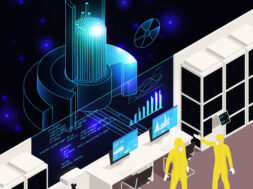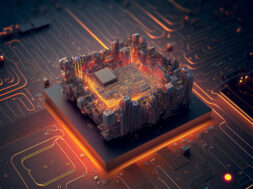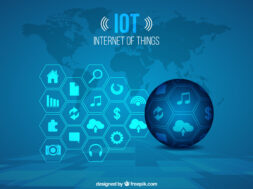
Exploring the Frontiers of Innovation: The Wonders of Space Technology
Space technology, or “space tech,” is a broad and ever-evolving field that encompasses a wide range of systems and technologies designed for use in space exploration, utilization, and research. It has changed the way we view the universe, transformed communication and navigation, and continues to inspire innovation in a wide range of sectors. In this post, we’ll delve into the fascinating world of space technology and examine its key components, applications, and most recent advancements according to the new technology news.
Crucial Space Technology Aspects
- Propulsion systems and rockets: Space exploration relies heavily on missiles, which are necessary to launch spacecraft into orbit. Advanced propulsion technologies, including chemical, ion, and nuclear propulsion, have improved efficiency, speed, and range, making it conceivable to travel far celestial planets.
- Satellites: These versatile equipment are used for Earth observation, communication, scientific study, and weather forecasting. These satellites come in several kinds, including geostationary, polar, and low Earth orbit satellites.
- Spacecraft: Spacecraft are designed for many purposes, such as robotic exploration missions and human spaceflight. They comprise landers, space missions, and space stations like the International Space Station (ISS).
- Telescopes and Observatories: Space-based telescopes, such as the Hubble Space Telescope, provide unparalleled views of distant galaxies, stars, and planets since they are not distorted by Earth’s atmosphere.
- Space Exploration Technologies: To undertake planetary exploration and collect data and images from distant worlds, rovers and probes, like NASA’s Curiosity and the Mars rovers, need cutting-edge technology.
Applications of Space Technology
- Communication and Navigation: Space technology has fundamentally altered global communication and navigation using satellites in geostationary orbit. They enable high-speed internet, GPS, and satellite TV.
- Earth Observation: Weather patterns, natural disasters, and climate change are just a few of the important environmental data that satellites record. Monitoring resources, agriculture, and disaster management may all benefit from this knowledge.
- Scientific research: Space technology is essential to scientific study because it allows us to learn more about the universe and our planet. In addition to satellite missions that make it easier for us to study far-off celestial objects, telescopes, and observatories offer priceless insights into the cosmos.
- Space Exploration: Space technology is essential to the search for further information on moons, asteroids, and planets. Space missions to Mars, the Moon, and beyond provide scientific data that may eventually pave the way for the human colonization of other worlds.
- National Security and Defence: The security and defense of the country are significantly influenced by space technology. It facilitates monitoring, surveillance, and communication via military satellites.
- Environmental Monitoring: Policymakers can make educated judgments and handle global environmental concerns by monitoring pollution, deforestation, and climate change from space.
Trends in Space Technology Presently:
- Reusable Rockets: Businesses like SpaceX and Blue Origin are setting the standard for developing reusable rockets, which lowers the price of space travel and creates new avenues for research and business.
- Small spacecraft: Often referred to as CubeSats or SmallSats, these spacecraft are becoming more and more prevalent because of their low cost. They are employed in various fields, including scientific research and Earth observation.
- Space tourism: companies like SpaceX and Virgin Galactic are working to make suborbital and orbital flights accessible to the general public.
- Travel to the Moon and Mars: Space groups and commercial companies are planning missions to the Moon and Mars to establish a permanent human presence on these celestial worlds.
- Space Debris Mitigation: As space debris increases, technologies for detecting and removing it are crucial to ensuring the safety of space activities.
Our eyes have been opened to new possibilities for improving Earthly existence and our comprehension of the universe by the incredible field of this new technology news. Thanks to continued innovation and the introduction of new players in the space industry, we may expect more fascinating changes in the years to come. Since space technology extends beyond only researching the universe to enhance our lives and defend the Earth, it is one of the most important and exciting sciences of our day.












